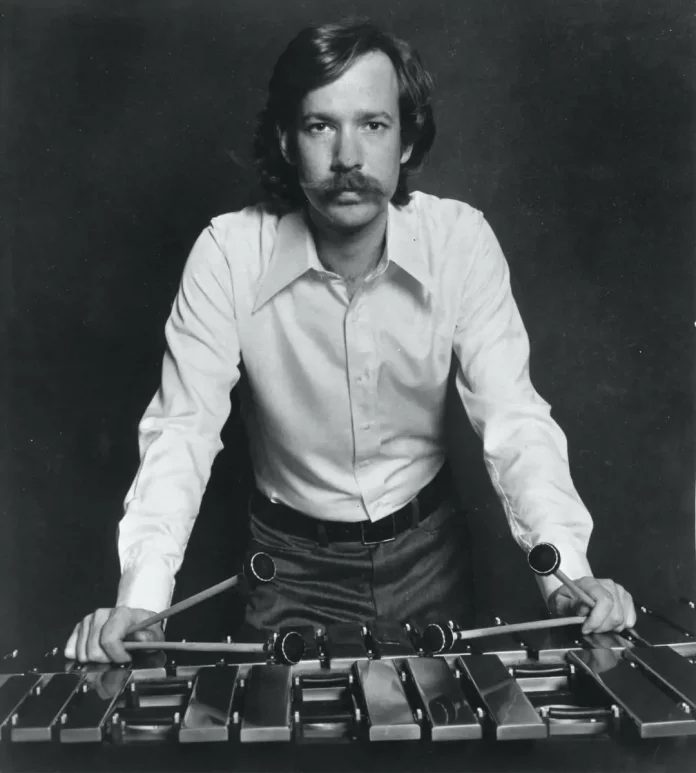One of the heartening things about today’s music scene is the interplay of ideas between a growing number of musicians who record together, play each other’s compositions, and generally display an affinity which can do jazz nothing but good.
As I walked into Ronnie Scott’s on the second last night of Gary Burton’s engagement, he’d just started to play a most beautiful delicate solo version of Chick Corea’s Crystal Silence, and he wound things up several hours later by using Keith Jarrett’s Grow Your Own to rock the roof off. He’s just about to record with Chick, has already made an album with Keith, and he’s planning an LP with Mike Gibbs, whose latest record features compositions by Jarrett and Burton; and so on!
Gary has got everything going for him; as evidenced by the two titles mentioned above, he can produce beautiful satisfying work in any mood and at any tempo. The completely unaccompanied pieces were the most visually impressive, as Burton played melody, harmony and rhythm with just two hands and four mallets, and his performance of Green Mountains/Arise Her Eyes as a solo medley proved that the glorious orchestral sound he gets from his instrument has yet to be properly captured on record.
And not only does he feature of the work of those composers like Corea and Jarrett who know how to combine rock and jazz, but also goes back a little for Las Vegas Tango by Gil Evans, and even further for Duke Ellington’s African Flower.
Roy Babbington’s bass guitar was in total sympathy with everything Gary did, and Tony Levin’s drumming is now more powerful than ever before, but it was John Taylor, depping for Gordon Beck, the advertised keyboard man, who stole the honours with his creative work on electric piano. He got better and better as the evening wore on, and his superb solo on Ballet, a blues by Mike Gibbs, was capped by a magnificent one on the second number of the final set, one of the few tunes Gary didn’t identify.
Major Surgery, with a line-up of tenor, guitar, electric bass and drums, were in support. They played some attractive themes, but the improvising of the front line over excellent rhythm work was very poor. I’ve heard good reports of this band, and it’s probably better to write no more about what was obviously an off-night and look forward to a better gig.
















